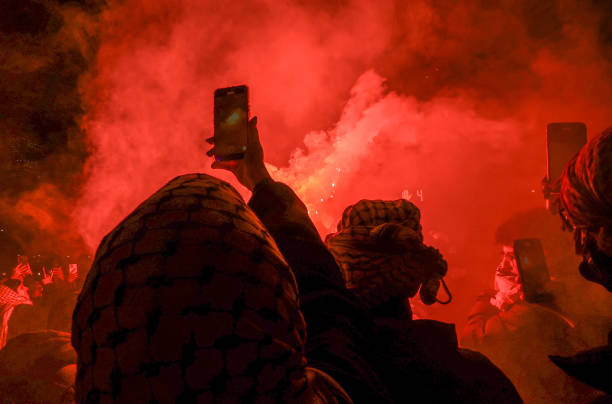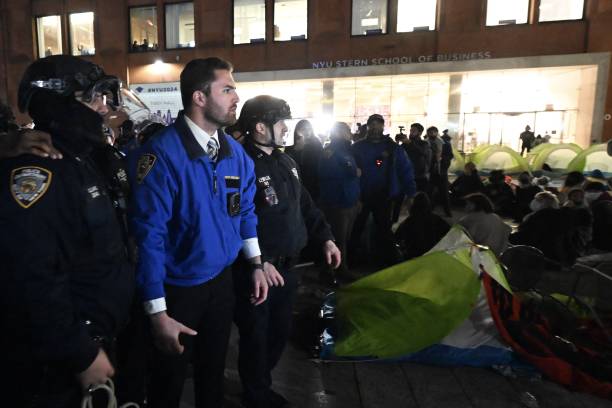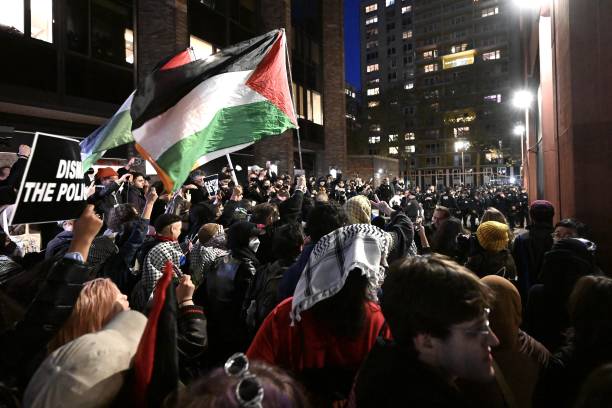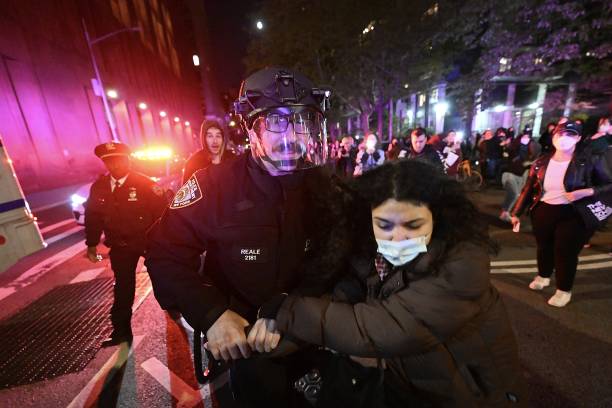Around 150 protesters were arrested at pro-Palestinian demonstrations held at Yale and New York University on Monday night, amidst escalating tensions on prominent US campuses.
At Yale University in New Haven, Connecticut, authorities detained at least 47 protesters on Monday evening, as confirmed by the university in a statement. Those students who were arrested will undergo disciplinary proceedings.
Protest at Yale, NYU
The protests at Yale drew several hundred participants, including individuals engaged in hunger strikes, advocating for the university to divest from military weapons manufacturers and other companies associated with Israel. Despite repeated requests from Yale officials for the demonstrators to disperse, warnings were issued regarding potential law enforcement intervention and disciplinary measures for non-compliance.

Meanwhile, in downtown Manhattan, confrontations erupted between police and protesters at New York University. Reports surfaced of officers employing pepper spray as demonstrators attempted to obstruct a police bus transporting detained students, resulting in the arrest of over 100 individuals.
Police Disperse Campus Protesters
Law enforcement officers moved in on an encampment near the university after nightfall, where hundreds of protesters had defied warnings from the university administration about potential repercussions for remaining on the premises.
Videos circulated on social media depicted police dismantling tents in the protesters’ encampment amidst a tense and occasionally chaotic atmosphere. Some officers were seen removing tents, while others engaged in physical altercations with demonstrators.

According to a spokesperson for the New York Police Department, arrests were made following Columbia University’s request for enforcement of trespassing violations. However, the exact number of arrests and citations won’t be known until later.
The police intervention followed a significant walkout by faculty at Columbia University on Monday, standing in solidarity with students who had been arrested the previous week during a camp protest. These students were advocating for the university to divest from companies associated with Israel.
Campus Activism Spreads Nationwide
Bassam Khawaja, a lecturer at Columbia Law School and a supervising attorney at the university’s human rights clinic, expressed dismay over the president’s swift action involving the police. He described the protest as non-violent, emphasizing that it resembled typical campus activities.
Following the events at Columbia, students across the country initiated their own demonstrations in support. Many of these protests demanded their universities to endorse a ceasefire in Gaza and to divest from companies linked to Israel.

Students at Brown, Princeton, and Northwestern staged protests on Friday and throughout the weekend.
Student-led protest encampments have sprouted up at the Massachusetts Institute of Technology (MIT) and Emerson College in the Boston area, reflecting a broader wave of activism across campuses.
Campus Unrest Sparks National Debate
Similar demonstrations have occurred at Boston University, the University of California, Berkeley, and the University of North Carolina at Chapel Hill.
Robert Kraft, a significant benefactor of Columbia University and owner of the New England Patriots NFL team, has declared his intention to withhold support “until corrective action is taken” on campus.

At Columbia University in New York, where diverse opinions on the Israeli-Palestinian conflict abound, some Jewish students have aligned with pro-Palestinian protests, while others have opted to abstain, citing feelings of insecurity.
Facing mounting pressure, Columbia University President Nemat Minouche Shafik summoned New York police last week to dismantle a tent encampment on the main lawn, where students had been advocating for the university to divest from companies with Israeli ties.
Criticism has been directed at Shafik both for her perceived leniency towards the protests and for the forceful intervention involving law enforcement. Calls for her resignation have emerged from certain members of Congress, spanning across party lines.
